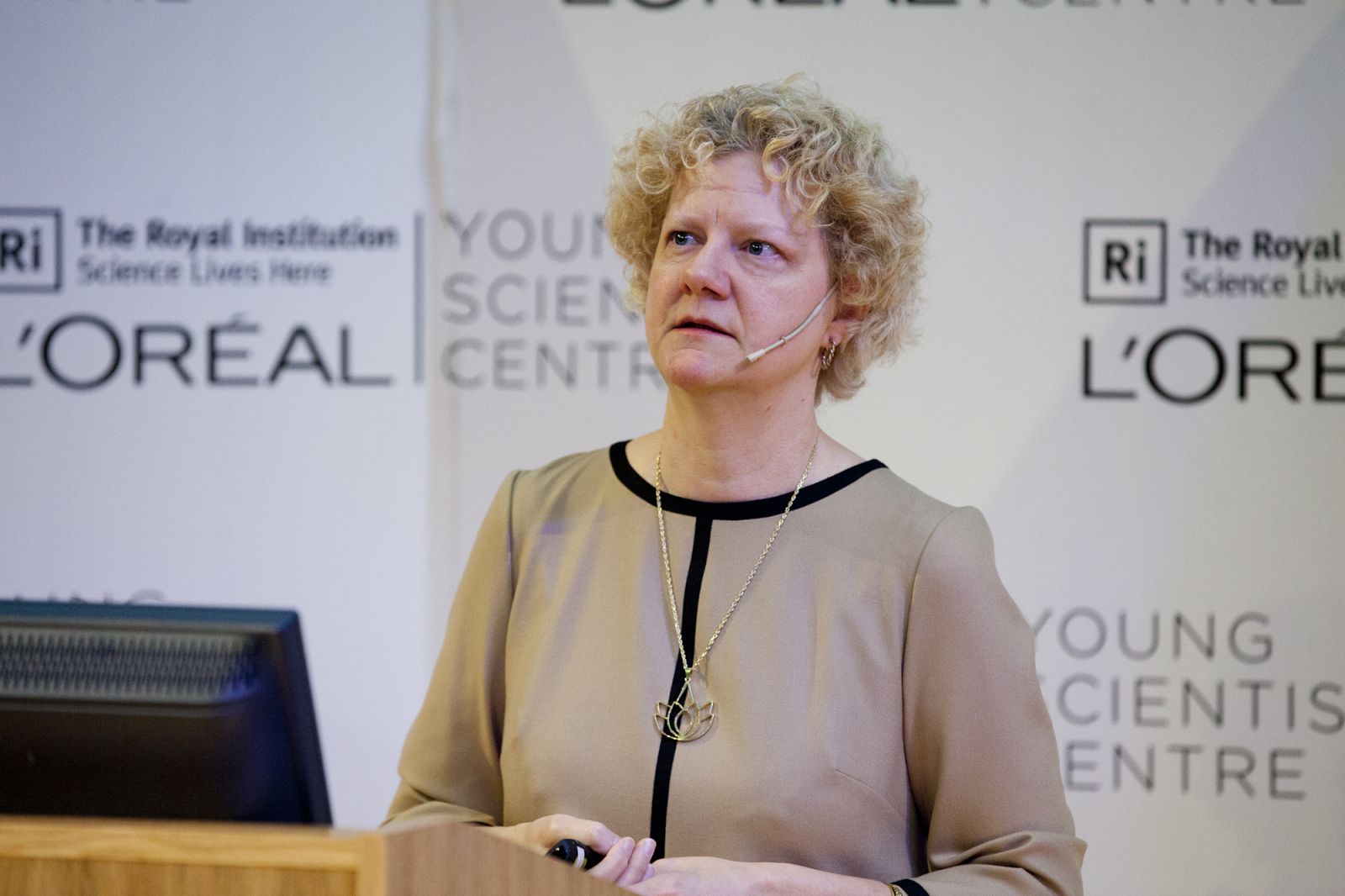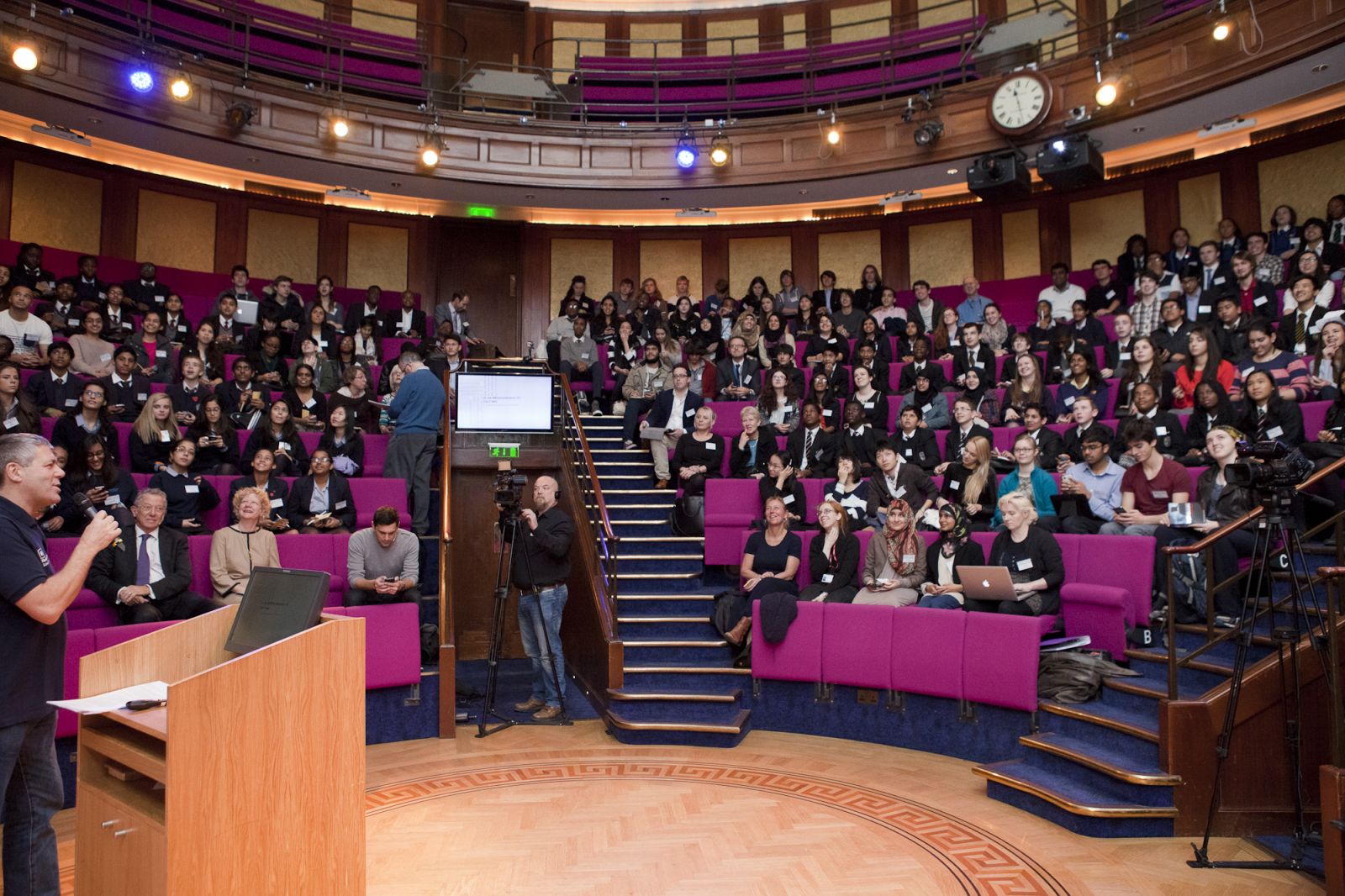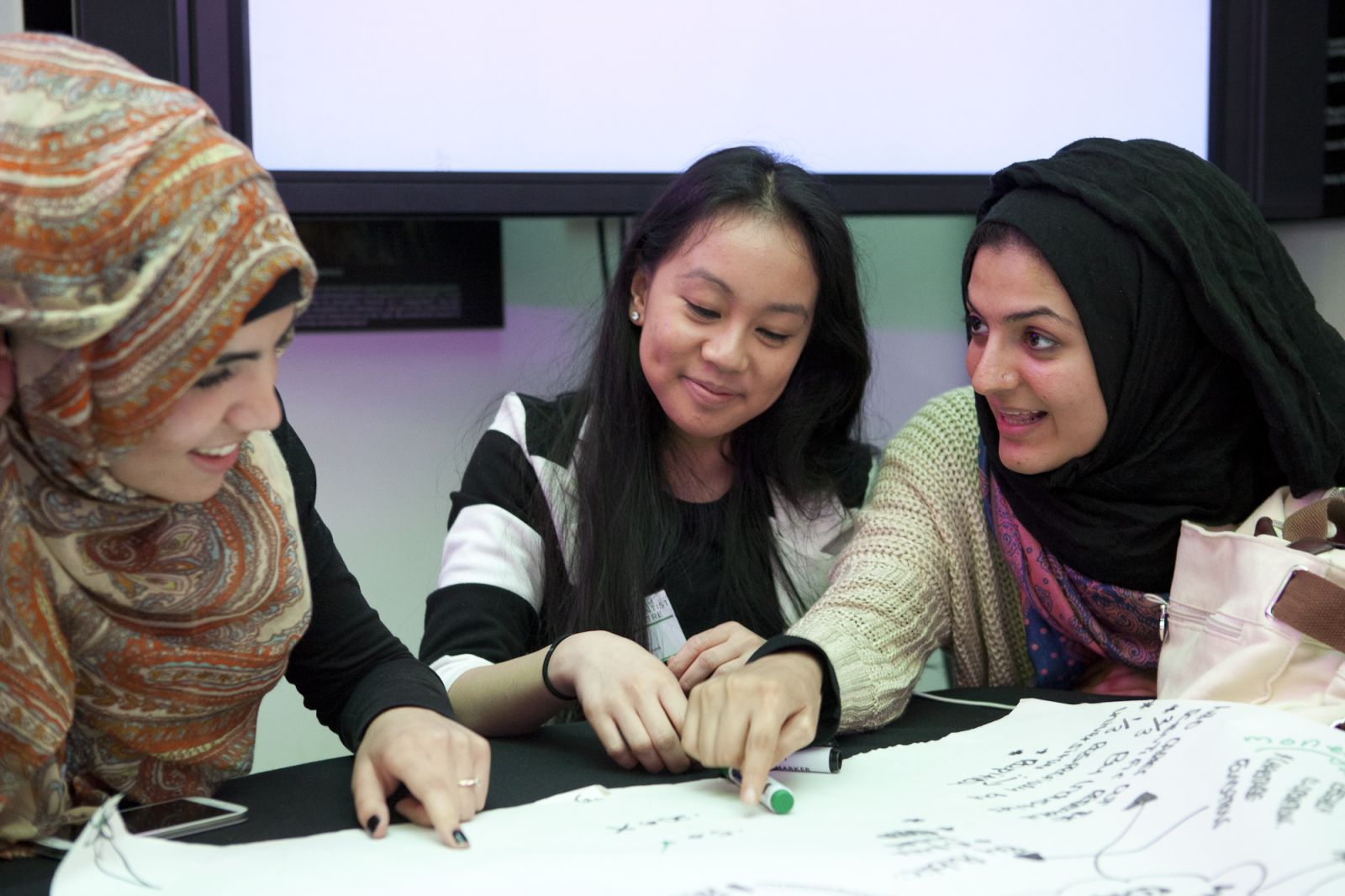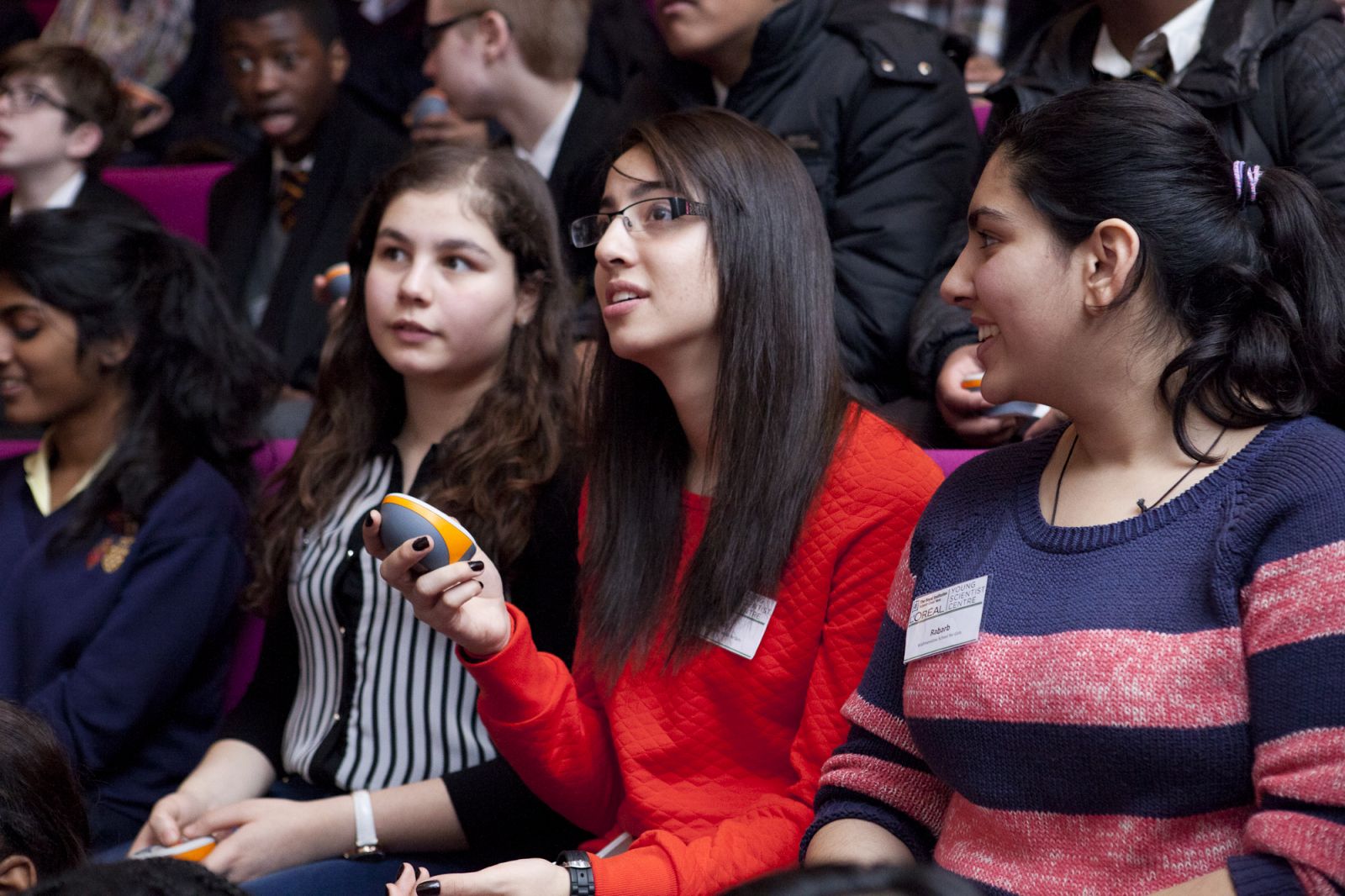News
Young people discuss biological and health data at 'unconference'
Susan Wallace of the Council’s Working Party on biological and health data addressed 280 secondary school students during the third annual L’Oréal Young Scientist Centre unconference at the Royal Institution on Friday 15 November. The 2013 unconference theme was ‘Future technologies and their ethical implications’ and Susan’s presentation focused on the increasing availability of personal health data online and the ethical issues raised by this development.








Dr Susan Wallace spoke at the 2013 L’Oréal Young Scientist Centre unconference.
Photos: Charlotte Medlicott
The ‘unconference’ brought together 14-18 year olds from schools around the UK to share their ideas about science and technology, and consider the way science affects public policy and decision making. Alongside Susan, three other speakers each gave a short introduction to a contemporary topic: Professor Sir David King spoke on climate and energy supply, Dr Adam Rutherford on biosciences, and Professor Tim Wheeler on environment and food security. Following the introductory presentations, the young people broke into groups to discuss the four topics and come up with policy suggestions and recommendations. Questions discussed in the group focussing on ‘biodata’ included:- Should everyone have their genome sequenced at birth and registered in a national database, available to researchers or criminal investigators?
- Should people be allowed to ‘opt out’ of such a register even if the use of their data could be of public benefit, for example by helping research into cures for common diseases?
- Should anyone be allowed to profit from using other people’s personal data?
- Could the increasing availability of people’s genetic information contribute to more social inequality, for example by making insurance more expensive for those with a higher chance of developing a genetic disease?
Share